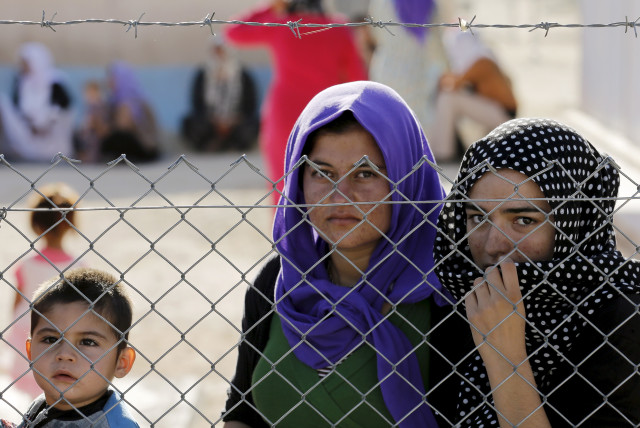Prosecutors seek 8 years for Dutch woman accused of keeping Yazidi slaves in Syria

She had told judges earlier in the trial that she moved from the Netherlands to Islamic State-held territory in Syria in 2015 with her young son to try to change her life for the better.
Prosecutors in the Netherlands on Wednesday asked judges to convict a Dutch woman for joining Islamic State in Syria and keeping two Yazidi women as slaves and sentence her to eight years in prison.
Hasna Aarab, 33, faces charges of taking part in slavery as a crime against humanity for enslaving two Yazidi, between 2015 and 2016, while she lived in Raqqa with her small son and her Islamic State fighter husband.
She had told judges earlier in the trial that she moved from the Netherlands to Islamic State-held territory in Syria in 2015 with her young son to try to change her life for the better.
One of her alleged victims, identified only as Z., told the district court in the Hague she viewed Aarab as partly responsible for Islamic State crimes against Yazidis and the enslavement of not only herself but also her two daughters who were kept as domestic slaves in other households.
"I burned inside when I saw her with her son while I did not have my own children around me," Z. said as a tearful Aarab listened.
Islamic State controlled swathes of Iraq and Syria from 2014-2017, before being defeated in its last bastions in Syria in 2019.It viewed the Yazidis as devil worshippers and killed more than 3,000 of them, as well as enslaving 7,000 Yazidi women and girls and displaced most of the 550,000-strong community from its ancestral home in northern Iraq.
Aarab's denial
Aarab denies taking an active part in the enslavement of the women and told judges the Yazidi victims were lying when they said she gave them orders and forced them to pray.
The Netherlands is only the second country to put an alleged Islamic State member on trial for crimes against humanity against Yazidis, an ancient religious minority who combine Zoroastrian, Christian, Manichean, Jewish and Muslim beliefs.
No date has yet been set for a judgment.
Jerusalem Post Store
`; document.getElementById("linkPremium").innerHTML = cont; var divWithLink = document.getElementById("premium-link"); if (divWithLink !== null && divWithLink !== 'undefined') { divWithLink.style.border = "solid 1px #cb0f3e"; divWithLink.style.textAlign = "center"; divWithLink.style.marginBottom = "15px"; divWithLink.style.marginTop = "15px"; divWithLink.style.width = "100%"; divWithLink.style.backgroundColor = "#122952"; divWithLink.style.color = "#ffffff"; divWithLink.style.lineHeight = "1.5"; } } (function (v, i) { });

